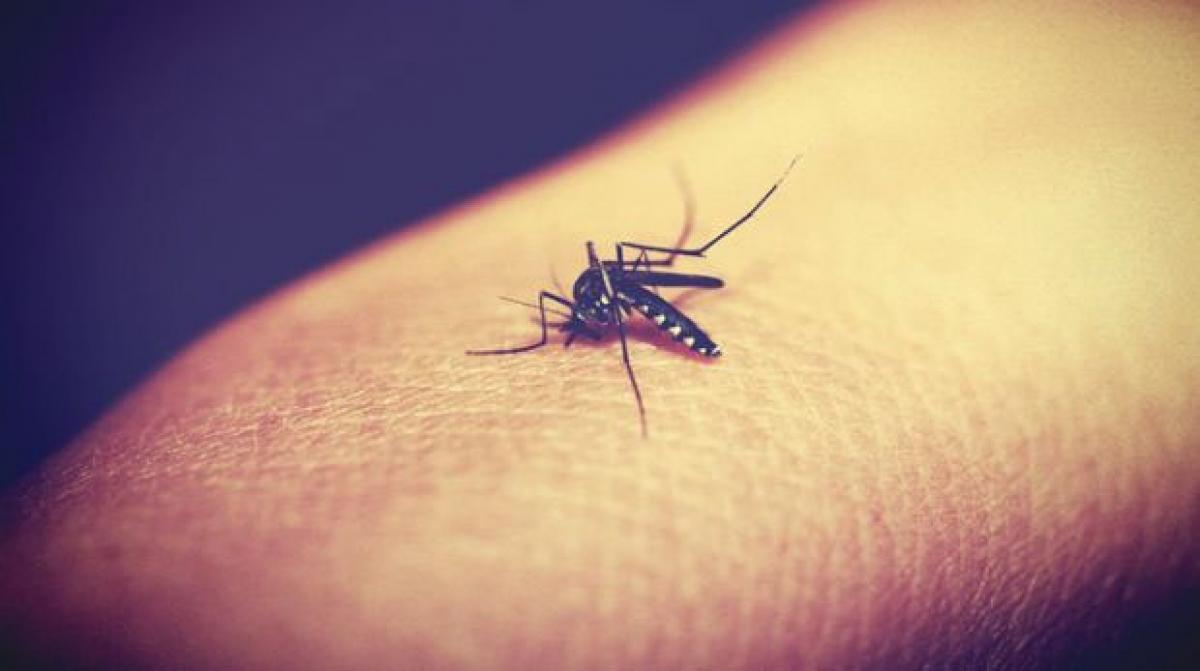Live
- All you need to know about PAN 2.0
- Akasa Air redefines travel experience with industry-first offerings
- MP: Residents stage protests against liquor shop in Indore
- Telugu Actor Shri Tej Booked for Alleged Cheating and False Promise of Marriage in Live-in Relationship
- Toyota Kirloskar Motor Celebrates 1 Lakh Urban Cruiser Hyryder on Indian Road
- MLS: New York City FC part ways with head coach Nick Cushing
- Delhi CM says Centre cutting AAP voters’ names from rolls, BJP hits back
- Hyderabad Metro Rail Phase-II Works to Begin in Old City in January 2025
- Odisha: 668 persons killed in human-elephant conflicts in last three years
- DEFENDER JOURNEYS: TO EMBARK ON ITS THIRD EDITION FROM NOVEMBER 2024
Just In

x
Highlights
Malaria parasites cause an inflammatory reaction that sabotages our body\'s ability to protect itself against the deadly disease, scientists have found for the first time.
Malaria parasites cause an inflammatory reaction that sabotages our body's ability to protect itself against the deadly disease, scientists have found for the first time.

The finding opens up the possibility of improving malaria vaccines by boosting key immune cells needed for long-lasting immunity. This could even include vaccines that have previously been ineffective in clinical trials.
Researchers found that the same inflammatory molecules that drive the immune response in clinical and severe malaria also prevent the body from developing protective antibodies against the parasite.
Diana Hansen, Axel Kallies and Victoria Ryg-Cornejo led a research team from Walter and Eliza Hall Institute in Australia that examined how the immune system responded to malaria infection caused by Plasmodium falciparum.
Hansen said it is the first time scientists have pinpointed why the immune system fails to develop immunity during malaria infection.
"With many infections, a single exposure to the pathogen is enough to induce production of antibodies that will protect you for the rest of your life," Ms. Hansen said.
"However with malaria it can take up to 20 years for someone to build up sufficient immunity to be protected.
During that time people exposed to malaria are susceptible to reinfection and become sick many times, as well as spreading the disease," she said.
Mr. Kallies said inflammatory molecules released by the body to fight the infection prevent protective antibodies from being made.
"Specialised immune cells called helper T cells join forces with B cells to generate these protective antibodies," Mr. Kallies said.
"However, we showed that during malaria infection critical inflammatory molecules actually arrest development of helper T cells and therefore the B cells don't get the necessary instructions to make antibodies," he said.
Malaria is one of the most serious human infectious diseases, with about 250 million clinical cases each year.
Children are particularly susceptible to severe malaria because they have little or no immunity to the parasite.
Severe malaria causes symptoms including anaemia, breathing difficulties, kidney failure and coma, and can quickly lead to death.
Hansen said the findings could lead to new avenues in the search for effective malaria vaccines.
"This research opens the door to therapeutic approaches to accelerate development of protective immunity to malaria and improve efficacy of malaria vaccines," Ms. Hansen said.
"Until now, malaria vaccines have had disappointing results. We can now see a way of improving these responses, by tailoring or augmenting the vaccine to boost development of helper T cells that will enable the body to make protective antibodies that target the malaria parasites," she said.
The study was published in the journal Cell Reports.
More On

Next Story
More Stories
ADVERTISEMENT
© 2024 Hyderabad Media House Limited/The Hans India. All rights reserved. Powered by hocalwire.com







